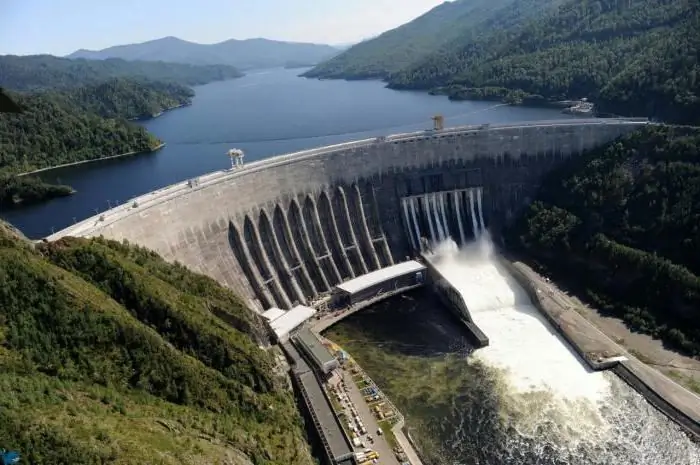2026 Author: Howard Calhoun | calhoun@techconfronts.com. Last modified: 2025-01-24 13:10:26
Russian media business is developing in general according to the Western scenario. Therefore, since the end of the 20th century, there has been a strong consolidation of the market and the emergence of the main media holdings in Russia. Let's talk about in whose hands the "fourth" power is concentrated today, and how different media corporations differ.

What are media holdings
Consolidation of markets leads to the emergence of large and very large companies. This is how holdings arise, and in the sphere of mass media - media holdings. These are large companies that unite several media platforms under one management. Holding is a special form of management, it involves a certain company that manages other enterprises. But in everyday practice, concerns, syndicates, and unions are often called so. The holding usually owns a controlling stake in subordinate organizations and therefore can make the most important strategic decisions. However, subordinate companies often retain freedom in their editorial policy and development tactics.

The history of the formation of Russian media holdings
The main reason for the emergence of holdings is the need to survive in an increasingly competitive environment. It is believed that historically the first media holdings in Russia appeared at the end of the 19th century, when the media market was developing. However, the real scope of the process of consolidation of the media market occurs at the end of the 20th century. In the wake of perestroika, a huge number of mass media appeared, they developed spontaneously, many were politically biased and did not, in general, bring large profits. But by the end of the 20th century, there was a trend towards commercialization of media, and this naturally led to the emergence of major players who began to buy up small media. It is the need for growth and increased profits that has become the driver of the concentration of the media business. By the beginning of the 21st century, the main landscape of the Russian media industry is taking shape.

Russian media market today
Today in Russia there is no single database of statistics that would make it possible to understand how many mass media there are on the domestic market. About 79% of the population choose the Internet as the main source of information, but television platforms do not give up their positions and fight for the young viewer. Paper media are showing an obvious decline, but they are gradually being converted to digital media. The main media holdings in Russia, the list of which varies in different sources, own different media: both digital and television. But there is some specialization. Some players focus on electronic media,others - on television or radio. According to various estimates, the lion's share of the market is occupied by 8-10 largest players, and the rest is accounted for by regional media holdings and individual media outlets.

VGTRK
Listing the key media holdings in Russia, first of all, it is worth mentioning the All-Russian State Television and Radio Broadcasting Company. It was created on the basis of state Soviet resources in 1990. The holding includes the federal network of television and radio stations.
The largest media assets of the holding are the television channels Rossiya-1, Rossiya K (Culture), the news channel Rossiya-24, the children's channel Karusel, as well as the foreign broadcasting channel RTR-Planeta . The holding also includes a network of radio stations: Radio Rossii, Vesti FM, Radio Mayak.
Ownership of these assets allows the holding to cover all corners of Russia. In addition to broadcasting, the company also acquired several digital TV channels: Real Scary TV, Mult, Russian Bestseller, Russian Detective and others. The VGTRK also includes 9 regional television and radio broadcasting companies. The holding also has its own Internet resources, the largest of which is the Vesti.ru portal and TV channels' websites. The share of VGTRK in the Russian media market is approximately 35%.

GazpromMedia
In 1998, a new player entered the list of Russia's largest media holdings - a subsidiary of Gazprom. She manages several veryinfluential media: NTV, TNT, TV-3, Pyatnitsa, Match TV channels, a whole range of channels broadcasting films, including Kinomix, Indian Cinema, Native Cinema, Kinohit, Film premiere and others. The holding also owns a number of large radio stations: Avtoradio, Humor FM, Ekho Moskvy.
GazpromMedia also retains several printed publications, in particular, it continues to publish the magazines Caravan of History and 7 Days, the holding also has several large Internet sites. Like other media holdings in Russia, GazpromMedia has created a network of companies selling advertising on its resources in the regions of the country.

National Media Group
In order to increase competitiveness in 2008, several resources united and created the National Media Group, which today is confidently included in the list of major media holdings in Russia. The company has gone through a difficult path of mergers, purchases and acquisitions, and today owns such serious assets as a 29% stake in Channel One, controlling stakes in Channel Five and RenTV, STS, Domashny, Che channels. The group also includes several large pay-TV channels and film production and advertising distribution companies.
Media empire of A. Usmanov
Until recently, the largest player in the media market was Alisher Usmanov and his YuTV holding. The company was founded in 2009 and was immediately focused on managing large television projects. Its assets include TV channels Yu, MuzTV, Disney. Later, the businessman sold his stake in YuTV Holding to IvanTavrin, who is now the sole owner of the company.
Today, Alisher Usmanov owns such large platforms as Mail.ru Group, VKontakte and Odnoklassniki. Also, its assets include the largest publishing house Kommersant. The holding is constantly updating its assets by selling part of the sites, so there are no statistics on its share in the media market, as well as on other major players. This business is very mobile and poorly reflected in the statistical reports.
Aktion-MCFER
Russian media holdings cover not only news and entertainment resources. Among the media players there is such an interesting company as Aktion-MCFER. It is the largest network in the field of professional media. The group includes more than 100 professional publications, several online services, 17 help systems and several distance learning courses. This company offers information services for accountants, lawyers, personnel managers, financial directors, and managers. The network operates mainly through subscriptions.
Internet media holdings
An interesting holding is Rambler&Co, which combines several major Internet projects at once: Afisha, Lenta.ru, Rambler, Gazeta.ru, Championship.ru and others. Today, the holding ranks first in terms of coverage of the Internet audience, overtaking other players and covering more than 6 million users a day. In second place in terms of the number of users of the worldwide network is Hearst Shkulev Media, which owns the sites of the magazines Elle, Maxim, and Mary Clair. And the thirdthe place is taken by the Komsomolskaya Pravda holding with a large number of regional offices.
Regional media holdings
The regions of Russia do not remain aloof from the enlargement of the market. There are local scale media holdings in all parts of the country. The largest local players are AS Baikal, Don-Media, My Udmurtia, Moscow Media. Every region of Russia is experiencing a gradual consolidation of the media business, as the survival of independent media becomes increasingly difficult.
Recommended:
Currency restrictions are Features of the functioning of the foreign exchange market

This article describes the phenomenon of currency restrictions, their functions, principles, reasons for the introduction and purpose. It also reflects the features of currency restrictions in Russia and their relationship with the trade and payment balance of the country
How to make a media plan. Example of media plans

When we are going to order advertising in local media, to conduct an advertising campaign, we willy-nilly sketch out a certain list of actions. In professional circles, such a list has received a special name - a media plan
Cost management as a guarantee of the effective functioning of the enterprise

The cost management system is becoming vital for the successful and efficient operation of an enterprise in an unstable economic situation in the country and in the world, because reserves for cost reduction can always be found. In addition, cost reduction depends directly on competent management. Cost management will be discussed in the article
The largest power plants in Russia: list, types and features. Geothermal power plants in Russia

Russia's power plants are scattered in most cities. Their total capacity is enough to provide energy for the entire country
List of new productions in Russia. Review of new productions in Russia. New production of polypropylene pipes in Russia

Today, when the Russian Federation was covered by a wave of sanctions, much attention is paid to import substitution. As a result, new production facilities are being opened in Russia in various directions and in different cities. What industries are the most demanded in our country today? We offer an overview of the latest discoveries

